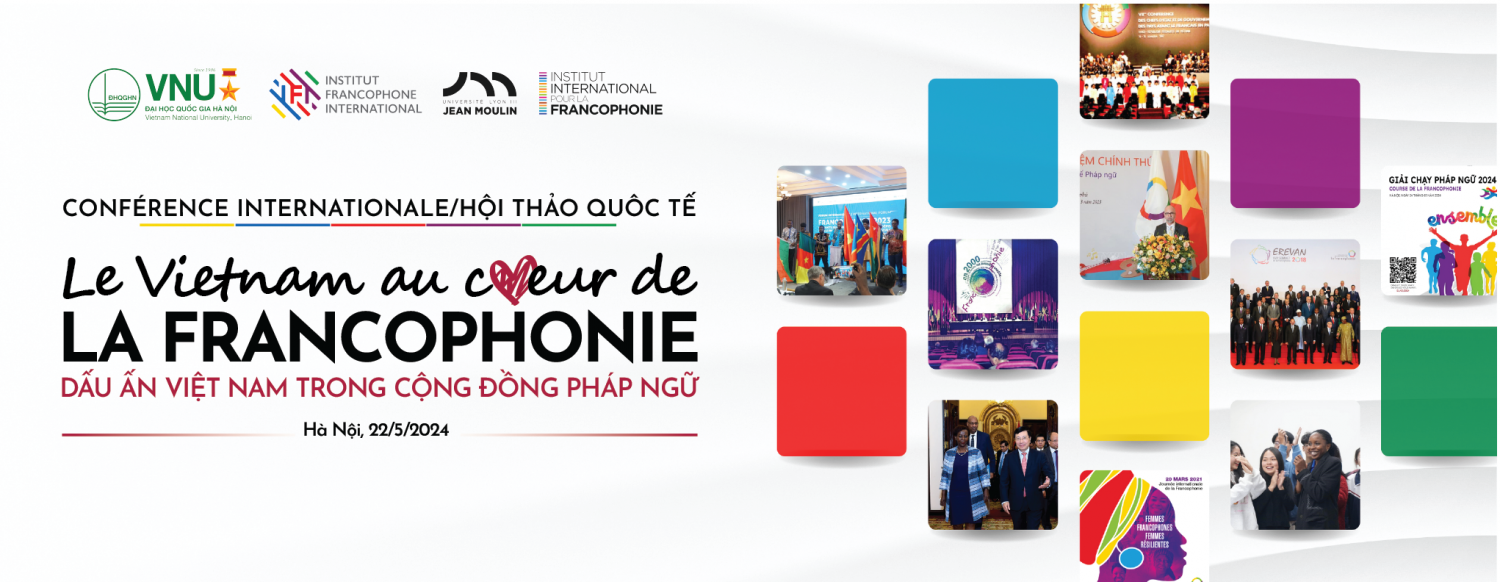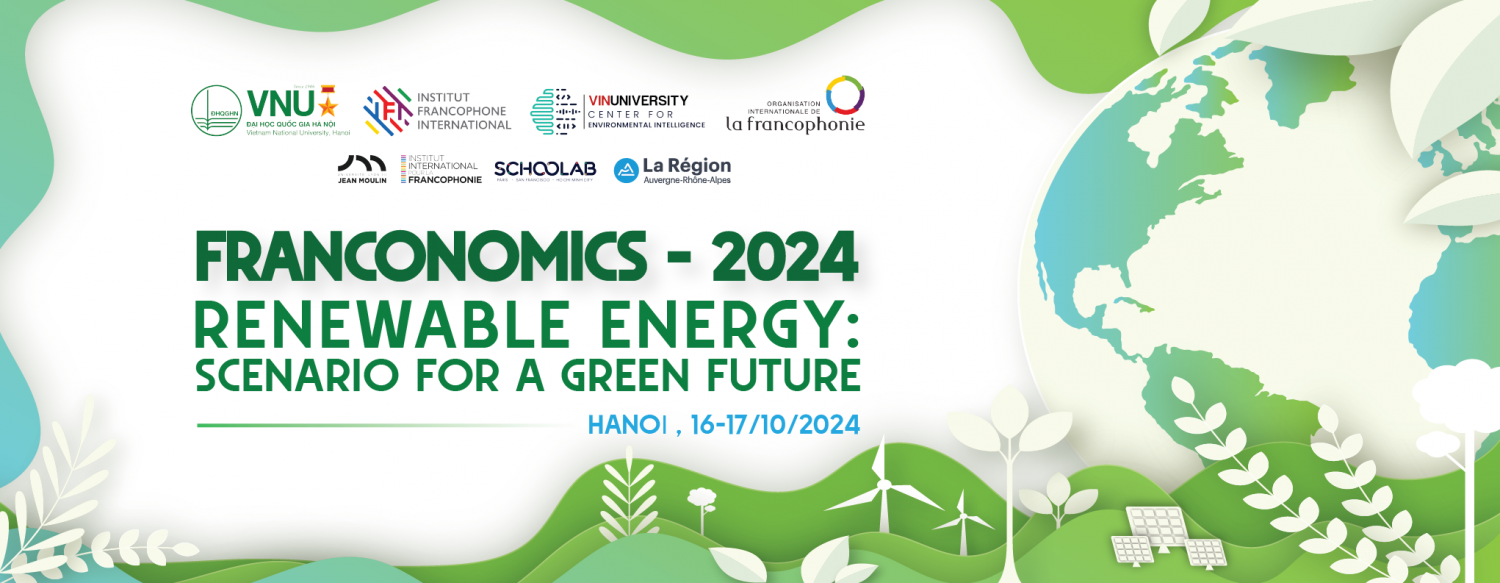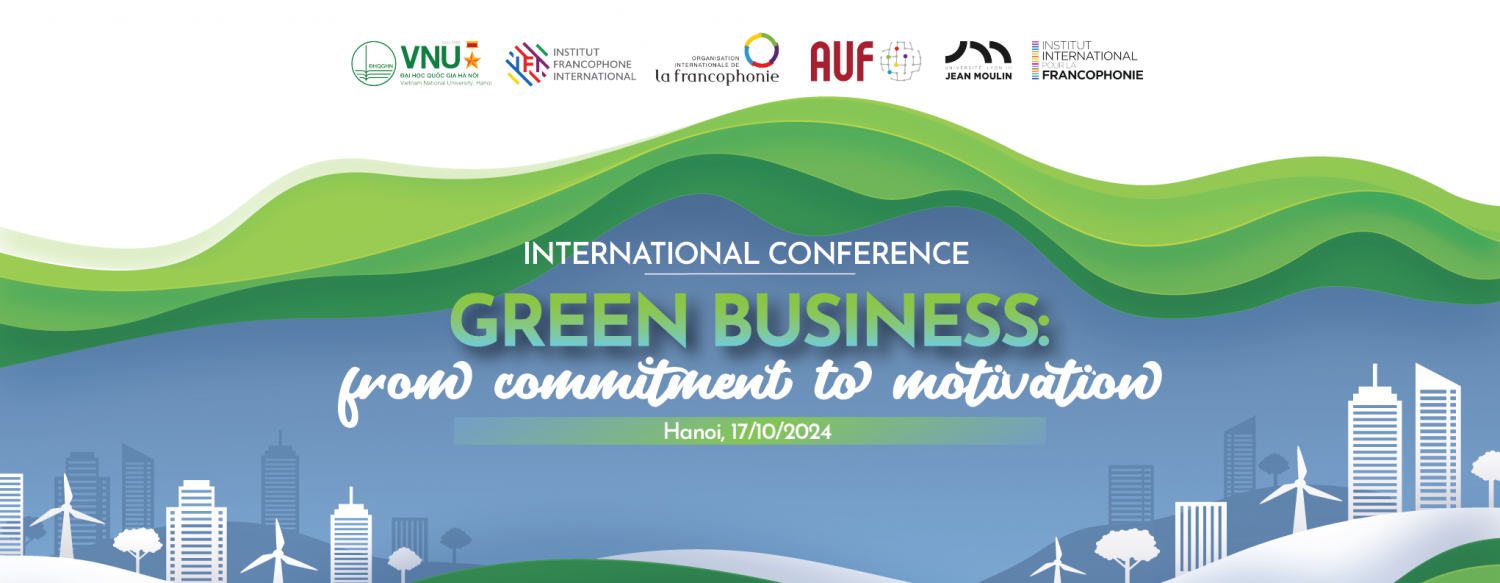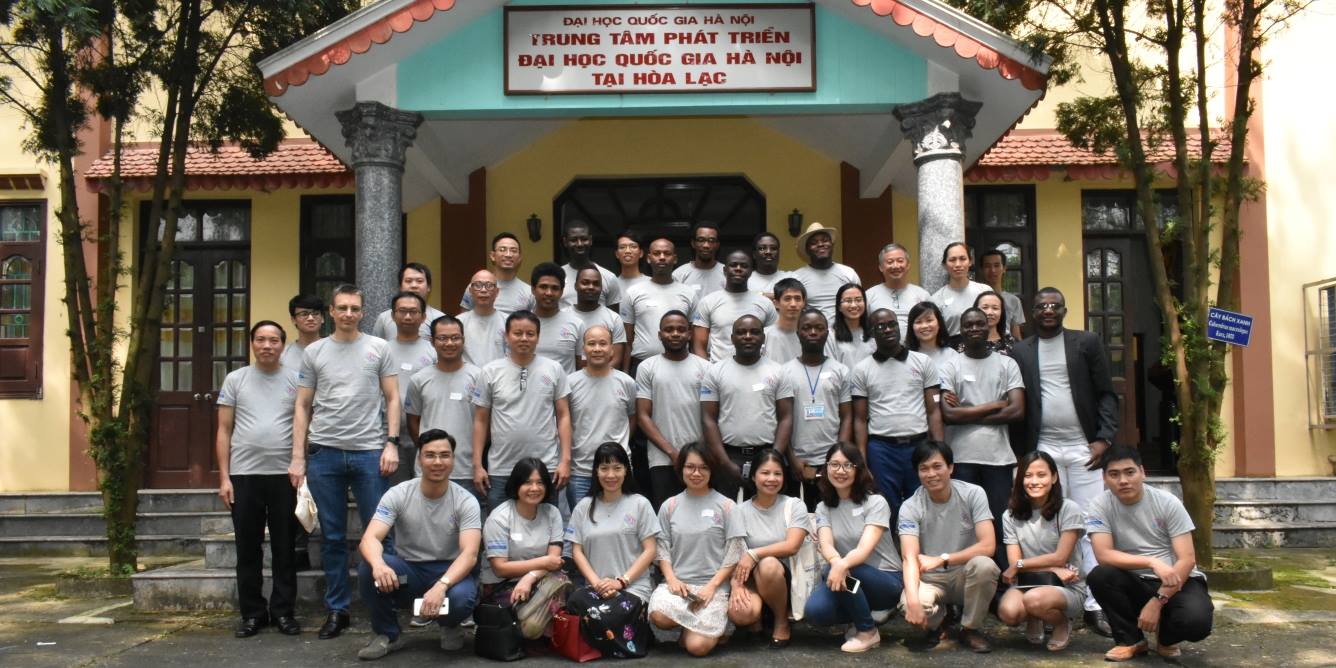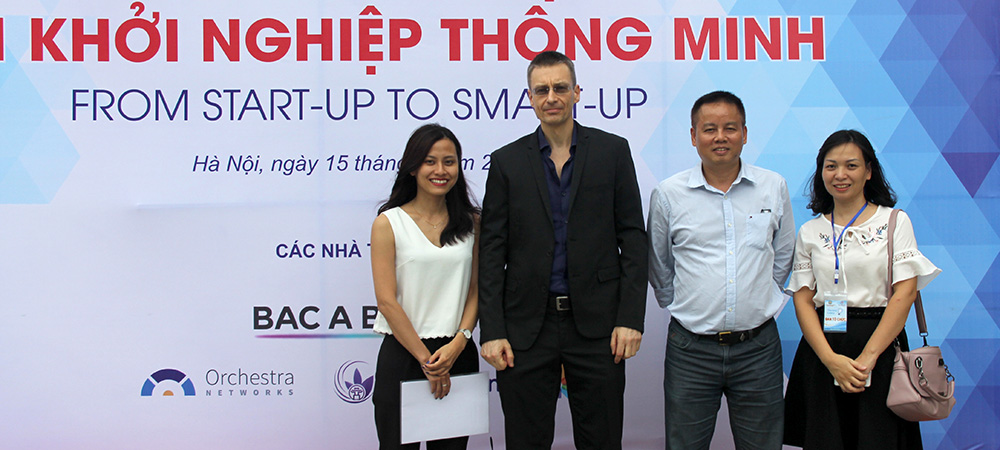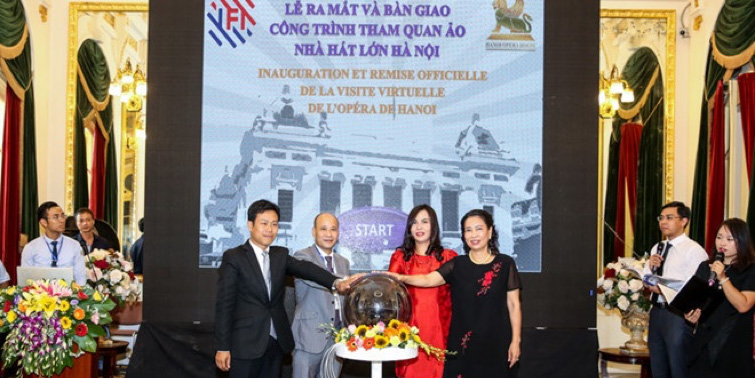International Conference "Green Business: From Commitment To Motivation"
FRIday - 29/03/2024 15:00The International Francophone Institute, Vietnam National University, Hanoi (VNU-IFI), the Center for Environmental Intelligence (CEI), VinUniversity, the International Organization of La Francophonie (OIF), the International Institute for Francophone Studies (2IF) - Jean Moulin Lyon 3 University, "For Green future" Foundation, the French Development Agency in Vietnam (AFD), the Wallonia-Brussels Delegation in Vietnam, the Interdisciplinary Institute for Culture, Language and Education fostering (CLEF) and the Vietnam Council of Agricultural Companies (VCAC) - Vietnam Chamber of Commerce and Industry (VCCI) are co-organizing the international conference “Green Business: From Commitment To Motivation” on October 17, 2024, in Hanoi. This conference is a part of the interdisciplinary scientific conference series DAAS (Diderot Advanced Academic Seminars), which is initialized by IFI and sponsored by VNU.
INTRODUCTION
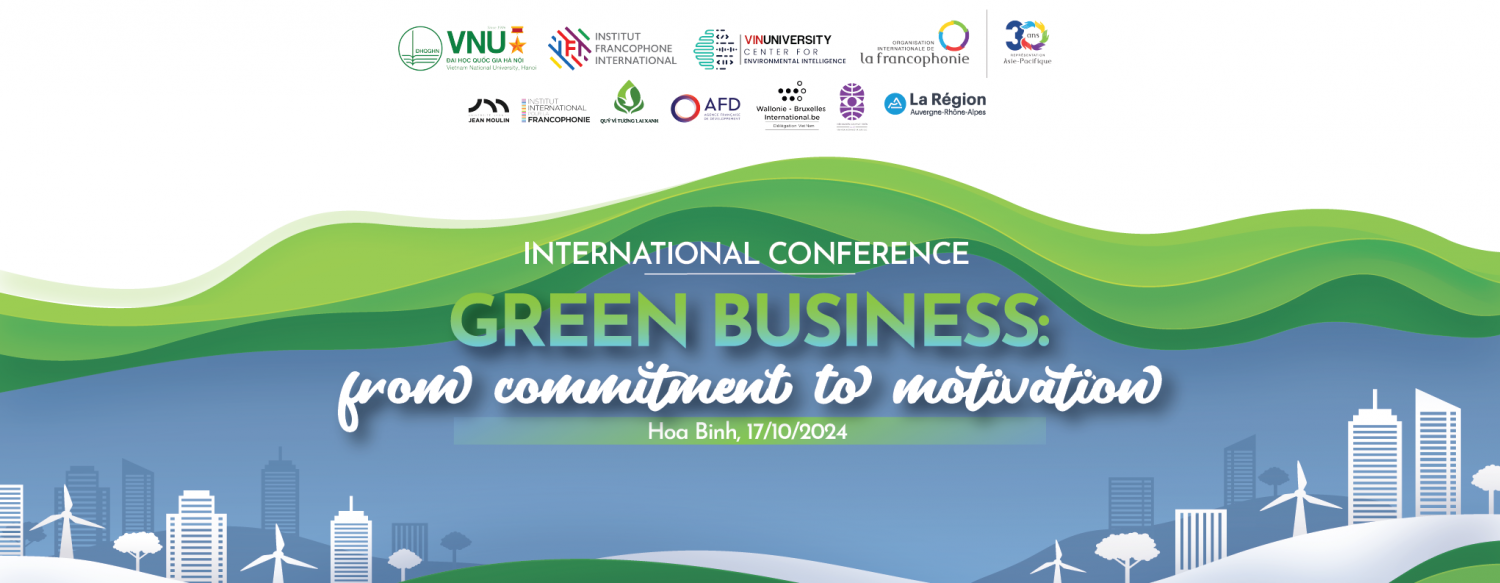
Currently, around 140 countries, equivalent to almost 90% of total global emissions, including major emitters like the United States, China and India, have committed to reducing emissions to net zero. Each country sets its own timetable for achieving this goal, mainly by 2050, with a few exceptions in 2035 and 2070 at the latest.
“Net Zero by 2050” – this commitment by Vietnam at the 26th United Nations Climate Change Conference (COP26) in 2021 marked a historical milestone creating a premise for a green and sustainable economy. To achieve this goal, there is a need for a comprehensive transformation, in which businesses play a very important role as their production and business activities are the determining factor of greenhouse gas emissions. For businesses, their participation in the “Net Zero” process faces many challenges but also brings new opportunities.
The current green shift trend has promoted the birth of a new model: Green business. Like all businesses, the goal of a green business is to make money. But “green” means that we achieve this objective while sustainably exploiting the opportunities offered by nature without harming the environment.
Green business can be defined from two points of view: one concerns the result in the form of green products (goods and services), the other concerns the process (or production) of an economic activity. Green businesses often focus on using renewable energy, reducing waste, optimizing production to reduce emissions and energy consumption, and promoting products and services that have positive impacts on the environment and the community. Additionally, green companies often initiate sustainable work culture, green supply chain according to eco-friendly standards and social responsibility in their business operations.
Green business development is not only just a trend but also a commitment of many economies. Participation in the “Net Zero” process is both an opportunity and a challenge for companies to comply with the trend of the green economy, especially to affirm the capacity of companies to integrate new technologies into production, to respond green production requirements, political and financial mechanisms for green transformation.
The international conference entitled "Green businesses: from commitment to motivation" in the International Forum Franconomics-2024 gathering scholars, researchers, implementation and management units aims to:
- Clarify the concept of green business, the criteria and evaluation factors;
- Know the context, opportunities, challenges and issues of developing green businesses in the current context;
- Analyze the strengths, weaknesses and new problems of developing green business models in the current context through practical implementation models;
- Highlight the role of the State and relevant parties in promoting the development of green business models;
- Analyze the potential and opportunities for national and international cooperation in this area towards equitable, global and sustainable development;
- Propose recommendations and suggestions for promoting green business models.
CALL FOR PAPERS
For the purpose of discussing, sharing research results, experience, and academic profession regarding the role of Vietnam in the Francophonie community, the Organization Committee cordially invites scientists, researchers, specialists, lecturers, etc. to participate and contribute content to the conference. Quality papers would be posted in the DAAS-2024 Proceedings of Diderot Advanced Academic Seminars (number ISBN and ISSN 2734-9969), and outstanding papers will be published in the Francophonie in Asia-Pacific Science Publication on "La francophonie au Vietnam : créer, innover, entreprendre" (International ISBN and ISSN 2525-2488).
Topics of the article include but are not limited to the following:
- Clarify the concept, factors, criteria of a green business;
- The issues posed by green enterprise development in the present context;
- Strengths, weaknesses, new challenges of developing the green enterprise model in the present context through practical implementation models;
- Green enterprises and social responsibilities;
- Green enterprises' business strategies and models to integrate environmental and social factors into daily business activities;
- The measurement and assessment methods which can be applied by green enterprises to evaluate the environmental impact;
- Challenges and opportunities for green enterprises in the global market include international competitiveness, regulation and cooperation;
- Strategies and technologies that green enterprises can use to develop and manage the green supply chain, including optimizing the transport and use of recycled materials;
- Training and development programs for green human resources to meet the growing needs of green enterprises and sustainable industries;
- The role of the government and its stakeholders in promoting the green enterprise model;
- The potential and opportunities for domestic and international cooperation in this area towards uniform, comprehensive and sustainable development;
- Recommendations and solutions in promoting the green enterprise model.
Deadline for submission of proposals and full text of the paper:
- Deadline for proposals submission: 15 August 2024
- Deadline for full text submission: 30 August 2024
Rules for the proposal and the full text of the thesis:
- Proposal (article title, name of subsection, keywords): no more than 500 words
- Full text (not including title, summary and keywords): no more than 5000 words
- The full text must be composed by .docx format, with no space, follow by author’s name, telephone number and working agency.
- Article form: The article is presented with font size 13, single line spacing, uses Times New Roman font. Justify: up 2 cm; down 2 cm; right 2 cm; left 3 cm. All pages, images, tables must be numbered clearly and precisely.
- Languages: Vietnamese, English, French.
Addresses and contacts for submission:
International Francophone Institute – Vietnam National University, Hanoi
Address: Room 109, E5 Building, Vietnam National University, Hanoi, 144 Xuan Thuy Street, Cau Giay, Hanoi
Contact point: 0243.745.0173 or 0976.181.193 (Ms. Ngọc)
Email: brain.ifi@vnu.edu.vn
ORGANIZERS
Author: IFI_BRAIN
Newer articles
Older articles
News
- The Future of Banking Innovation: The Next Generation Core
- IFI Participated in the Career Orientation and Enrollment Consultation Day 2024
- Opening Ceremony of the Short-Term Software Tester Course (2023-2024)
- Workshop "Emotional Intelligence in the Workplace"
- IFI international students perform the song "Ms. Afrika Wakes Up" on the Vietnam Defense Television channel




